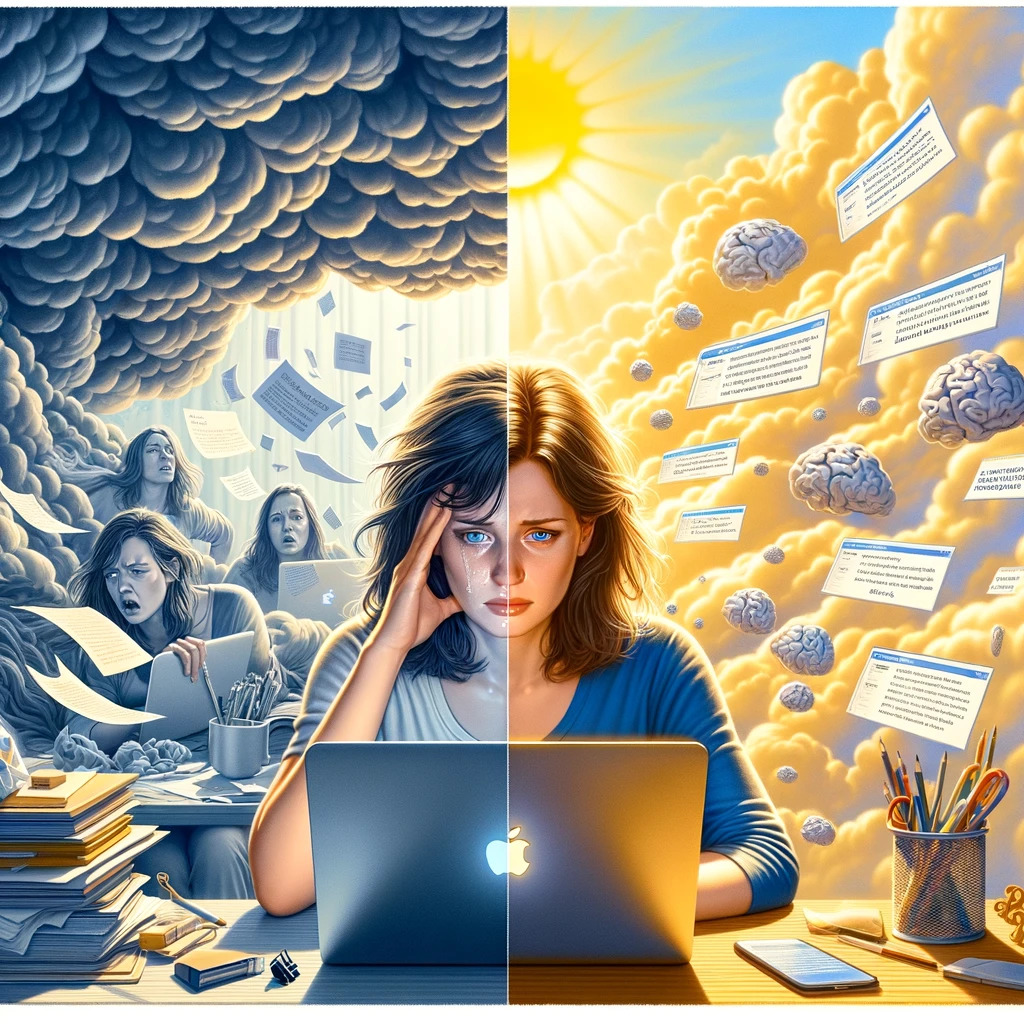Please allow me a brief interlude for a non-legal tangent to update you on an unexpected ChatGPT medical use case and reason for my delayed posting.

On October 3rd, I was driving home, the usual thoughts of dinner plans swirling in my head. Unfortunately, the normalcy of my evening shattered as I exited the freeway and stopped at the traffic light. The driver behind me failed to stop at the light or for the accident he caused. Thinking that the damage was minor, I was more aggravated than worried as I described the events to the responding officer.
A few days later, my ability to focus disappeared. What should take minutes stretched into hours. After a trip to see my doctor, I was diagnosed with a mild concussion and told to avoid electronic screens. But the stubborn mule in me decided to power through grading assignments and teaching classes. Bad idea. I ended up causing myself great pain and extended my screen restrictions further.
The most frustrating part? I was suddenly missing words that I had been using for 20+ years. I’d stare at sentences I’d written, knowing something was off, but the right word eluded me. This was terrifying for someone whose profession revolves around precise and accurate word selection. I actively sought to regain my language capabilities.
It remains unclear what led me to the notion that ChatGPT could be a remedy to this problem. I soon found myself, however, feeding incorrect sentences to the chatbot, explaining the improper word choice, and requesting alternatives. And voila! Within seconds, ChatGPT offered options, often including the word that my mind was denying me. If the word did not come up right away, a prompt or two usually provided me with the word I sought. I was beyond grateful for the gift of my missing words.
Fast forward a month, and I am finally feeling closer to myself again. The missing words are minimal, but my appreciation for this technology has not diminished. In addition to being thankful for generative AI, I have begun wondering about its applications for others who have suffered from similar issues. My co-blogger, Becka Rich, is delving into the technology’s application for neurodiverse individuals, research which I follow closely. But I keep wondering if the technology has potential to benefit those who have suffered from traumatic brain injury or even mild dementia.
Two personal reasons shift my thoughts in this direction, beyond my recent concussion. First, I once had a student who was in a serious motor vehicle accident with a significant traumatic brain injury. She was on medical leave for over a year, and when she came back her cognitive struggles to write and speak at her previous levels were obvious. I wish this technology had been available to her then. It may have expedited regaining her confidence and language skills. Second, my family has a history of dementia. One of my biggest fears is losing myself to this disease eventually. Could this technology help delay a decline by reminding a dementia patient of their knowledge and keeping their memory active?
With these motivating thoughts, I began and continue researching the issue. Although abundant literature explores generative AI’s role in diagnostics and treatment planning, a discernible void exists with regard to patient use in cognitive rehabilitation. I finally came across a paper today that discusses AI’s use for diagnosing dementia and goes on to speculate that it has promise as part of the patient’s cognitive rehabilitation toolbox. Unfortunately, the authors do not delve too deeply into this topic or hint that research is currently being conducted on the issue (see p. 8 of PDF). This area seems ripe for further research on the issue.
This post wavers a bit from our legal focus, but hopefully you stuck with me through my non-legal tangent about my personal hiccup and my resulting discovery of an unexpected benefit of access to generative AI. I am curious to know what other, non-legal (as opposed to illegal) uses of generative AI you wish to see explored. While I am certainly not qualified to undertake medical research like this, I hope that this post will inspire someone who is qualified and who can help other grateful patients.
